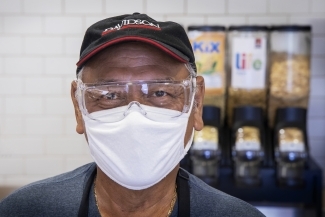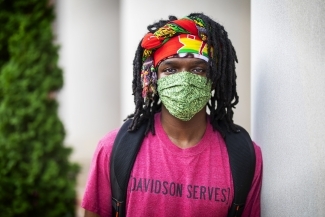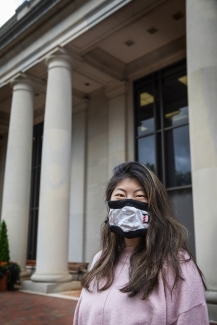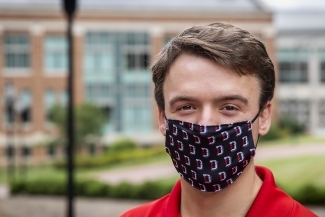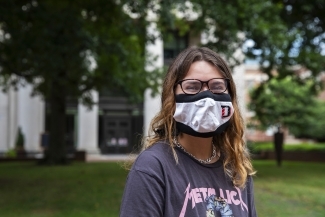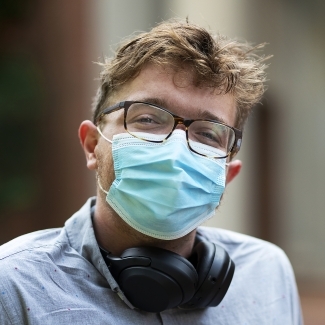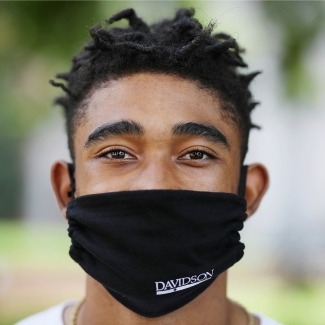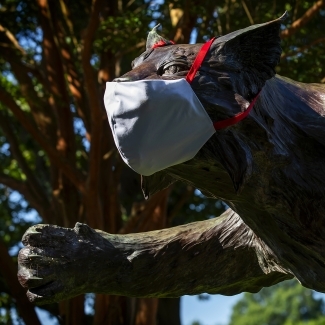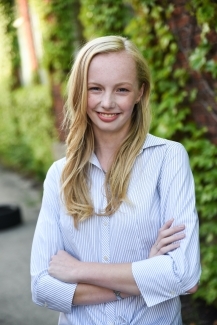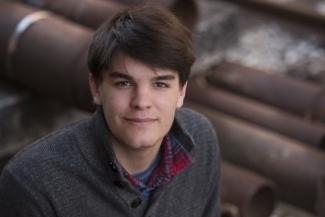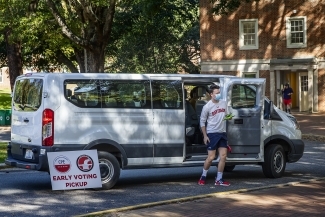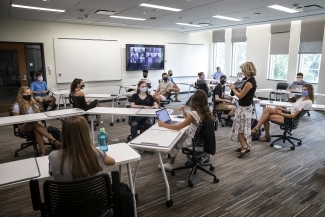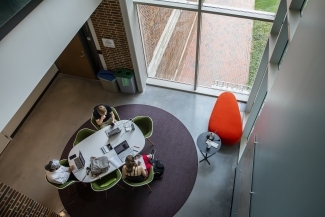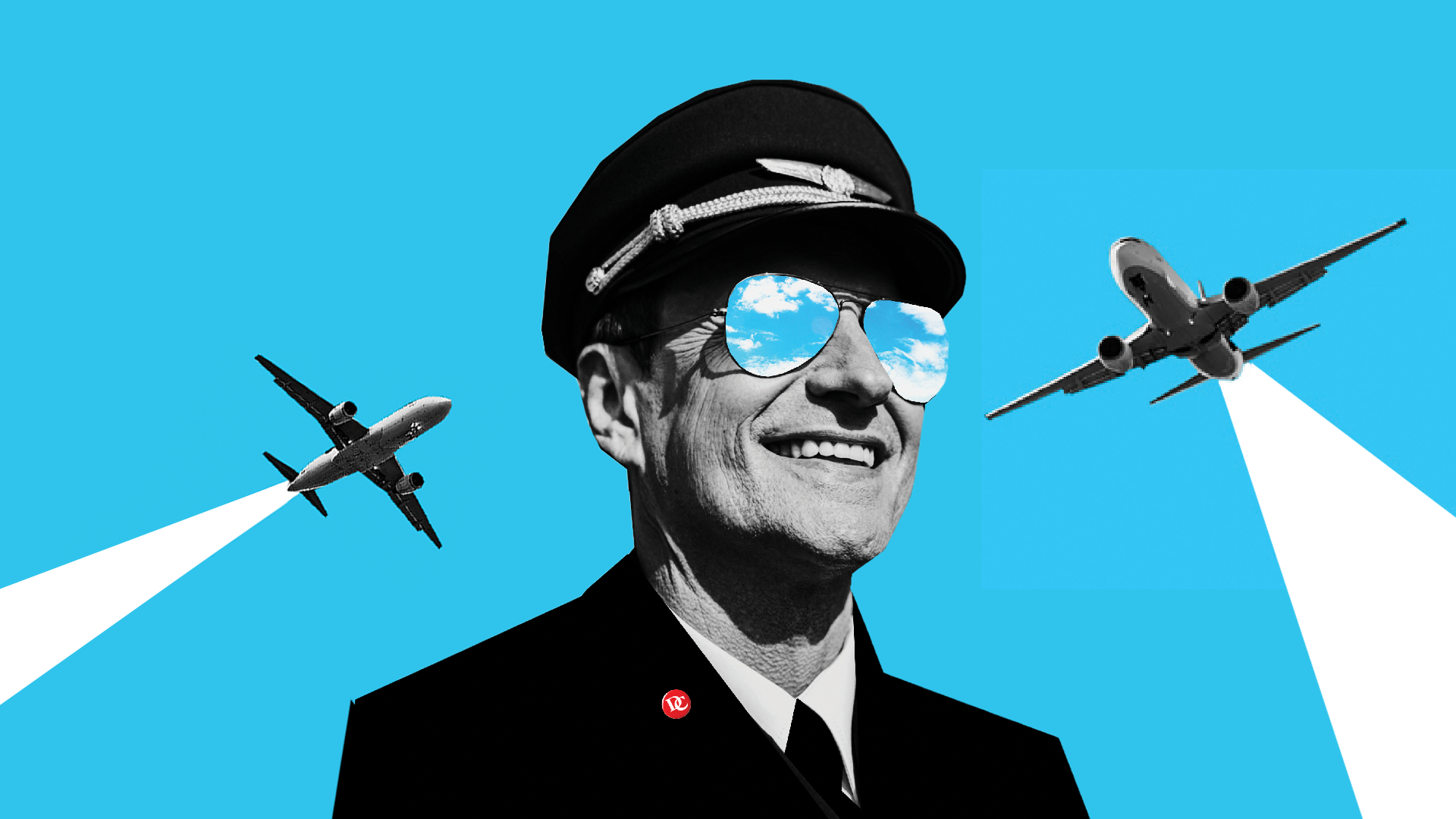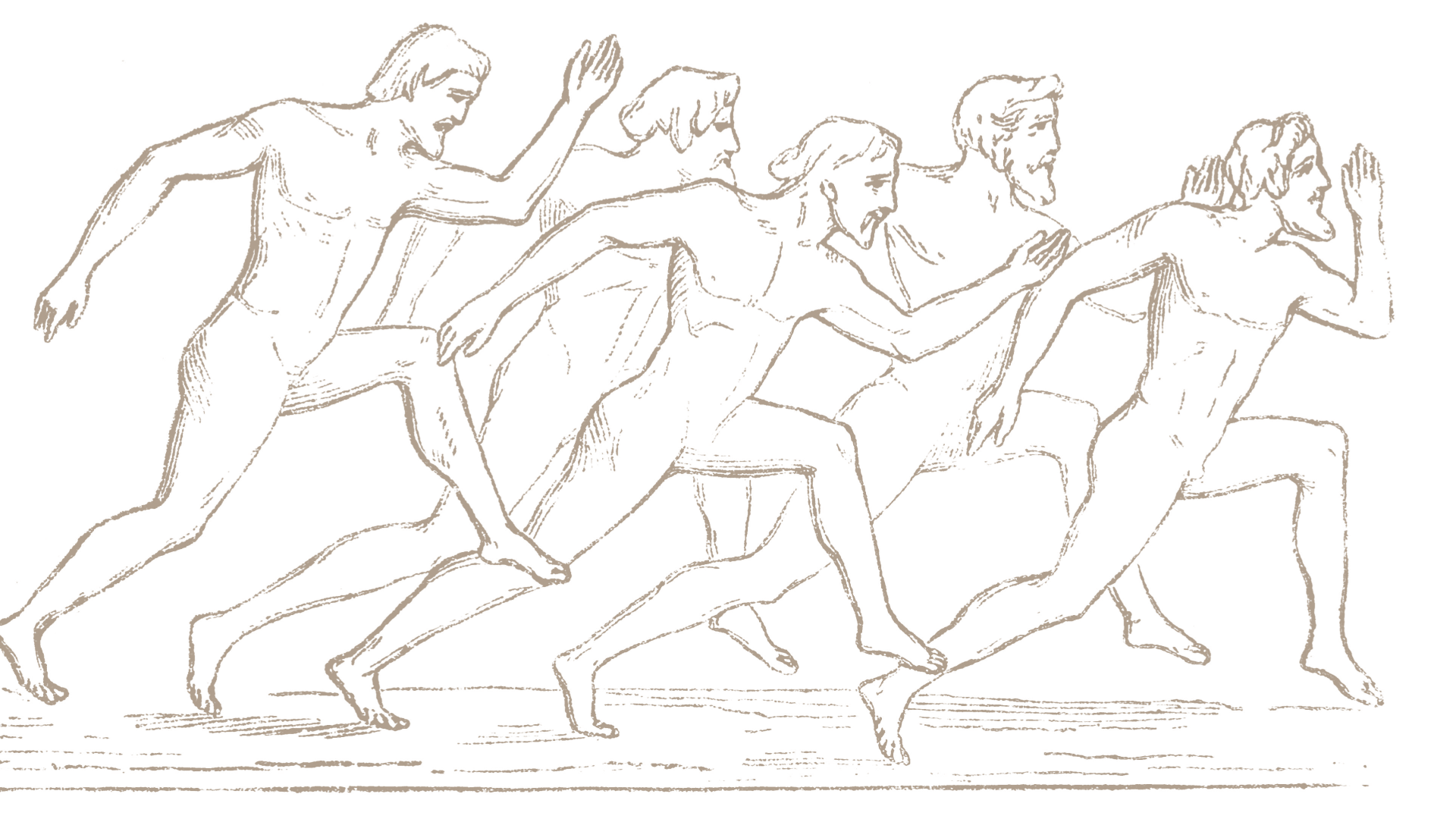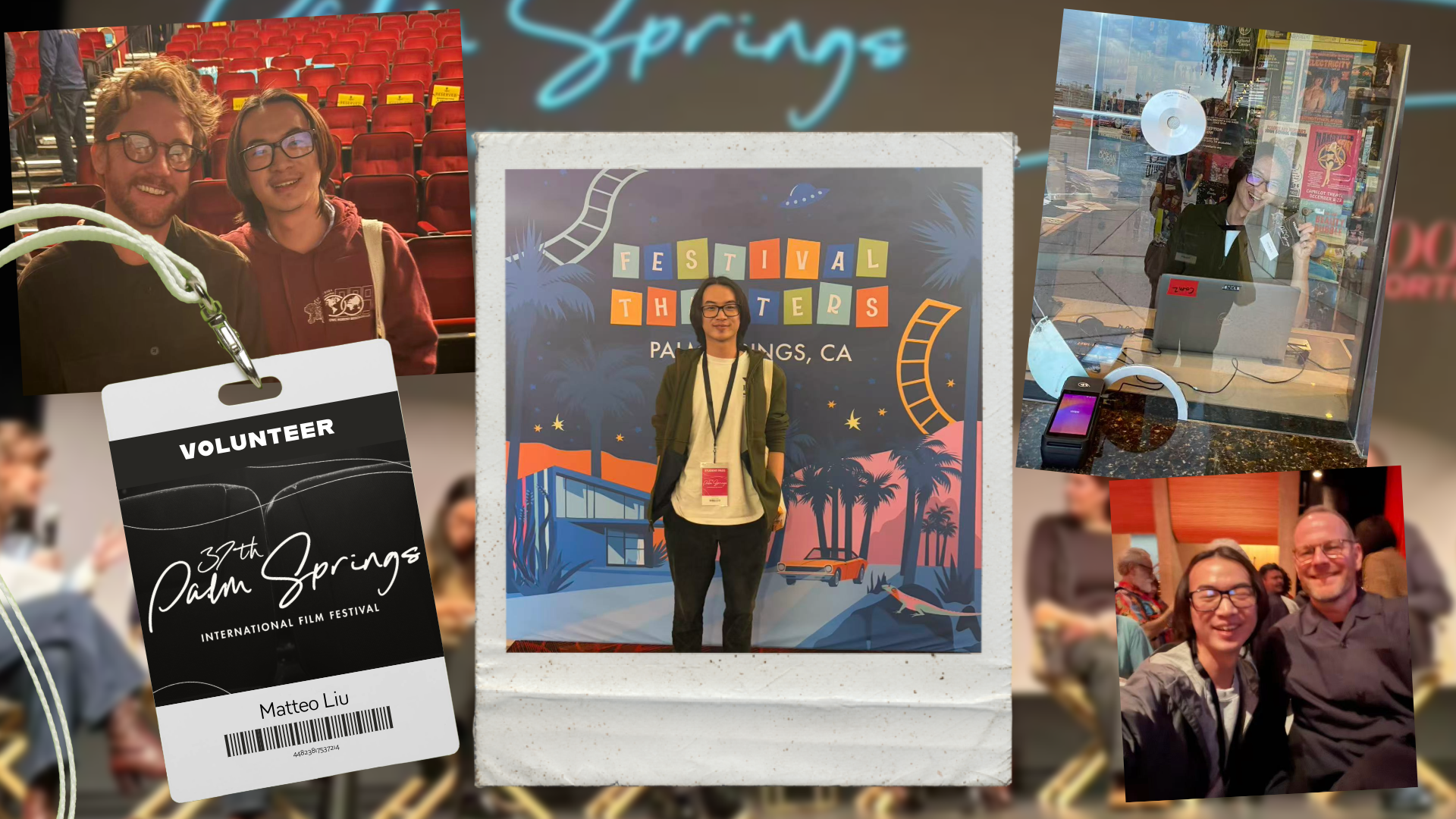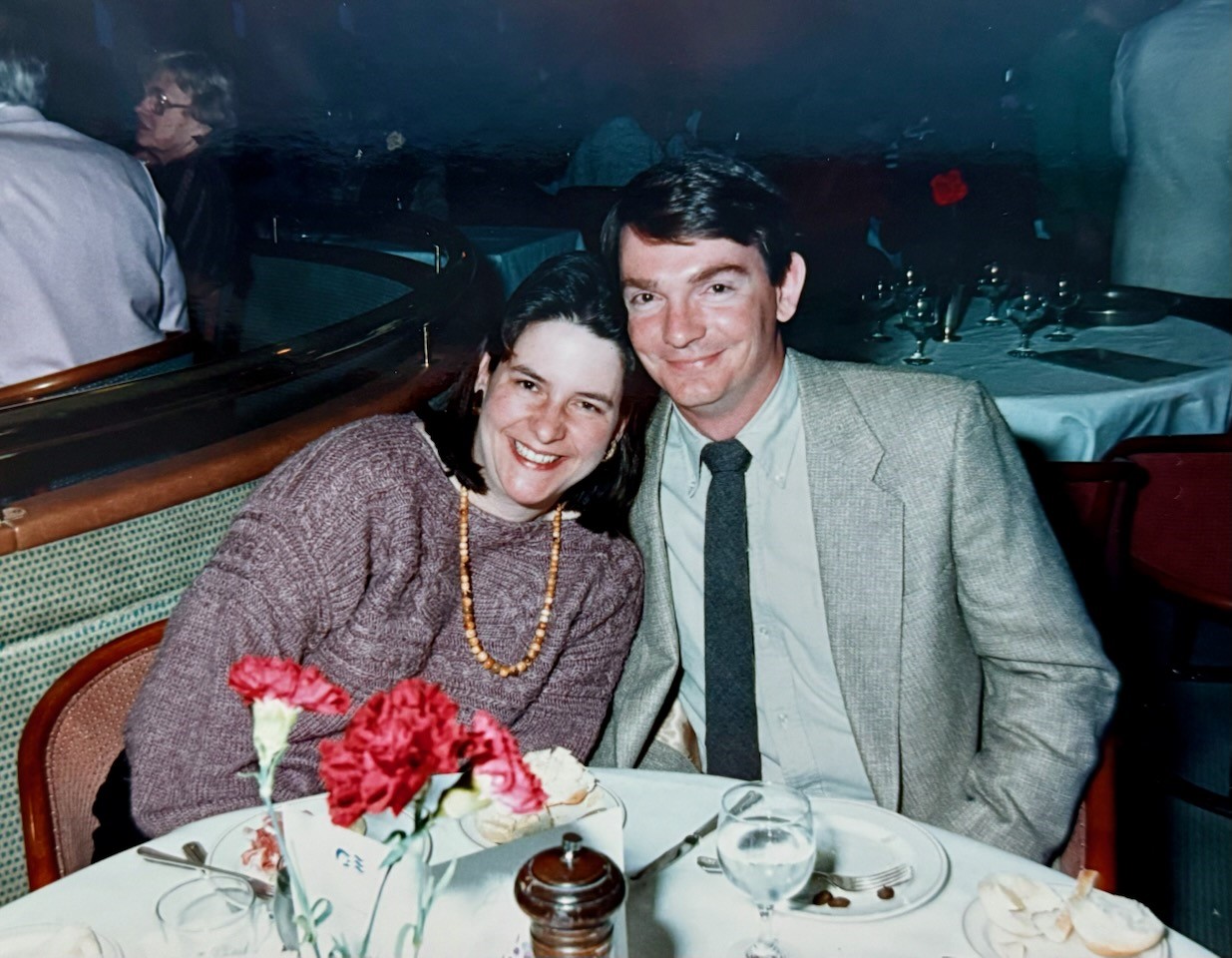A Look Back at a Trying Year: Goodbye 2020
December 30, 2020
- Author
- Mary Elizabeth DeAngelis
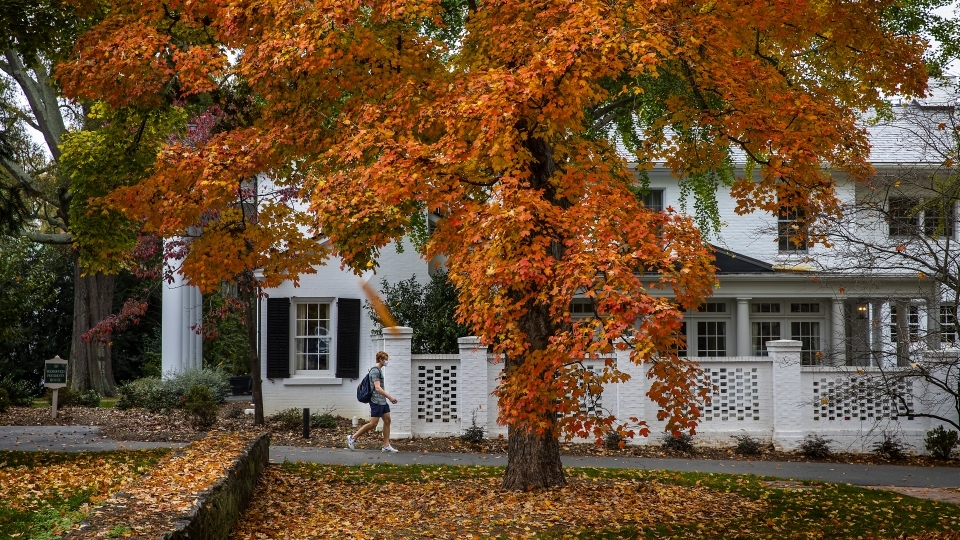
As we prepare to welcome 2021, we pause to remember 2020. It was a year of loss, anxiety, reckoning, resilience, and yes, hope.
Israel Palencia and his family celebrated last New Year’s Eve at the home of close friends in Miami. They cheered and hugged as the ball dropped on Times Square in New York, ringing in the new year.
He ate 12 grapes to make wishes for the next 12 months, a tradition from his native Cuba. And then Palencia, from Davidson College’s class of 2023, walked around the block wheeling two suitcases. A suitcase symbolizes the desire to visit faraway places. Palencia, who dreams of traveling the world, wheeled two for extra good luck.
But 2020 didn’t go as planned for him, or for that matter, the world he so wanted to see. As January unfolded, COVID-19 had begun its deadly spread. By mid-March the United States and other countries shuttered businesses, schools, sports and entertainment venues. By year’s end, some 340,000 Americans would lose their lives to the disease. Others would lose jobs and fall into financial devastation.
The novel coronavirus overshadowed nearly every aspect of a year whose iceberg of anxiety, uncertainty and unrest had many tipping points.
It’s now time to say goodbye to 2020. For many, it will be good riddance to a year of unfathomable loss and turbulence. Some managed to find silver linings in its cloudy skies. Amid darkness, candles of kindness, heroism and innovation—including new vaccines—offered light.
As Palencia eats his 12 grapes, he’ll not only make wishes for the new year, but will reflect on each of the 12 months that have passed. It’s his family’s personal ritual added to the standard tradition, a time to look back.
It seems especially fitting now for the Davidson College community to remember the last 12 months. For if ever a year deserved a proper ending, it would be 2020.
January/February
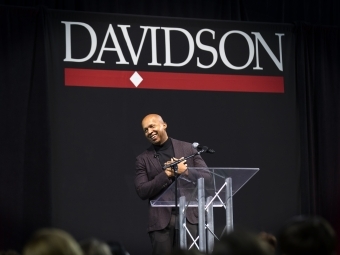
On January 28, a rapt audience packed the John M. Belk Arena to hear attorney Bryan Stevenson deliver the Reynolds lecture. The Equal Justice Initiative founder and author of the book “Just Mercy,” detailed the true stories of people ensnared by the poverty and racism-fueled inequities of the criminal justice system. That theme, of seeking equal justice and treatment, previewed the year ahead, and would resurface, again and again.
Meanwhile, the United States reported the first case of COVID-19 in a traveler from China.
Lorena James ’21 had begun following news of the virus in late December, when the first reported outbreak surfaced in Wuhan, China. James, a Belk scholar and Chidsey Leadership Fellow, had been a high school exchange student in Wuhan, then spent a college semester abroad in Shanghai. She worried about her host family and friends and was relieved to hear that they were healthy amid China’s strict lockdown.
Davidson’s senior leaders also closely watched virus developments and had begun planning for its arrival. Students prepared to study in China remained in the United States. Those already abroad would soon come home.
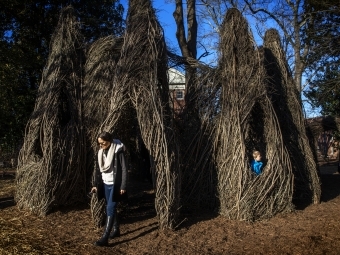

For most Americans, the virus seemed far away. In the first few weeks of February, Davidson student, faculty and staff volunteers braved lots of rain, some snow flurries, and occasional sun to work with the sculptor Patrick Dougherty. They gathered twigs and branches to weave into three tall towers that became the outdoor sculpture, “Common Ground.”
The sculpture offered a respite for quiet thought, a meeting spot for friends, and for younger local kids, an enchanted woodsy castle in the middle of the college’s manicured lawns.
March/April
Many Davidson students spent the first week of March’s spring break at beaches, mountains or home with their families. They returned to campus, and a different world.
New York City had become America’s COVID-19 epicenter. North Carolina reported its first case. On March 11th, The World Health Organization declared the virus had become a global pandemic.
The next day, Davidson students were in classrooms, at lunch, in dorms and apartments when the announcement came: the campus was closing.
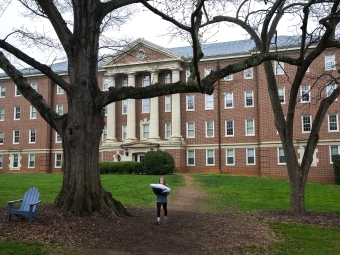
The college community felt shock and grief over the next few days as students scrambled to pack their things and make arrangements to go home. In the midst of despair, kindness and generosity prevailed.
Davidson alumni donated money, airline miles and gift cards to help students who couldn’t afford plane tickets. Professors made room in home sheds and basements for students to store their things. Local families offered guest rooms, rides to the airport and food.
“I’m so impressed by the empathy I’m seeing,” Political Science Professor Ken Menkhaus said at the time. “There’s such an outward focus, this sense that we all cope a lot better when we branch out from ‘how does this affect me’ to how to make it better for someone else.”
The word “pivot” became the mantra of the COVID-19 era.
Education Professor Chris Marsicano ’10 and a team of students turned their disappointment into action, by documenting how the pandemic affected higher education institutions across the country. Their College Crisis Initiative (C2I) became a trusted and sought-out information outlet for colleges, businesses and media outlets around the world.
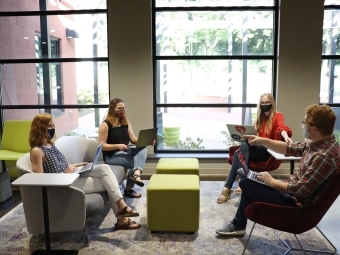
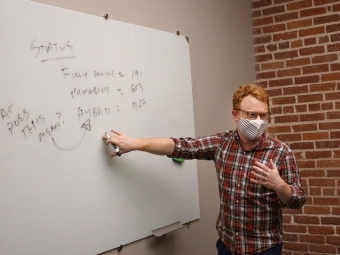
Professors turned to Zoom to hold once in-person classes. Most students attended from their family homes, with childhood bedrooms turned into makeshift classrooms.
“This is now part of their life story, the part they’ll tell their grandkids someday,” one student’s mother said. “They may not have carried lunch buckets 10 miles in the snow to get to school, but this is this generation’s resilience training.”
May/June

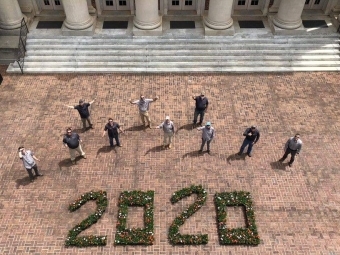
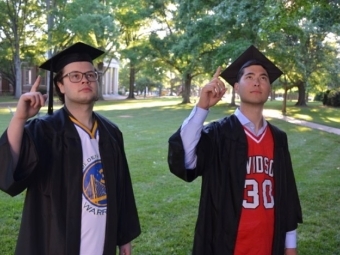
Graduating students felt the pandemic pain especially.
With campus closed, the college postponed the commencement ceremony indefinitely. On May 17, students tuned in from afar as President Carol Quillen and college leaders congratulated them and promised they’d celebrate in person when it was safe. The college’s Board of Trustees raised $200,000 to help students who needed help to get back for the future ceremony.
“At a very stressful time, some of you learned how to live with your families again, and others learned to live far away from them,” Quillen said in the livestreamed event. “You worked hard to help the most vulnerable, and even in your profound disappointment you modeled integrity, discipline, creativity and humane instincts.”
A little over a week later, an America cooped up by COVID-19 erupted.
Video of a white Minneapolis Police officer kneeling on the neck of a Black man, George Floyd, for nearly nine minutes as Floyd gasped his final breaths horrified the nation. Protests broke out in Minneapolis and across the country. Protesters called for an end to police brutality and systemic racism. Most were peaceful, some ended in violence, looting and destruction.
Calls for social justice reverberated loudly in the college community. Quillen and Student Government Association President Brandon Harris ’22, a Belk Scholar and Terry Fellow, released a joint statement decrying racism.
“As a young Black male, the killing of George Floyd has been extremely difficult to process,” Harris said. “It’s another reminder that my well-being is under constant threat by a system that wasn’t built to look out for people like me.”
Effective and sustainable change, Quillen said, “must involve recognition of the roots of systemic racism and the identification of action points that we can work on as a community to work towards achieving the fair treatment of all people.”
July/August
Summer was especially quiet on campus. There were no soccer or basketball camps. No July Experience for high school students. No summer research projects. Everything centered around reopening for the fall semester.
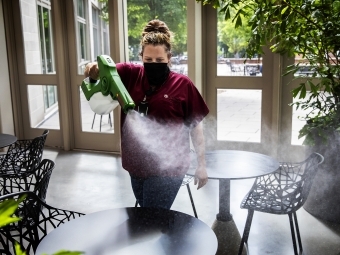
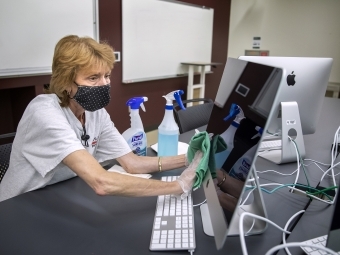
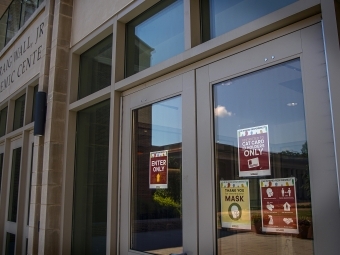
Building Services crews reconfigured dormitories and classrooms and deep cleaned the entire campus. Dining Services reimagined ways to keep people safe and physically distanced. College leaders planned extensively and in excruciating detail for a safe semester.
As the national conversation about social justice continued, Davidson confronted its own past. The college’s Commission on Race and Slavery, established in 2018, detailed how Davidson benefitted from the labor of enslaved people in its early days and was later complicit in supporting policies that oppressed Black people. On behalf of trustees, Quillen apologized and announced an action plan for a more equitable campus.
“As an institution with moral responsibility,” Quillen said. “Davidson College affirms our commitment to acknowledge fully wrongs of the past and to act now and in the future for a just and humane campus and world.”
In August, students returned to campus against the backdrop of that on-going reckoning, and the pandemic.
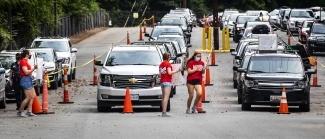
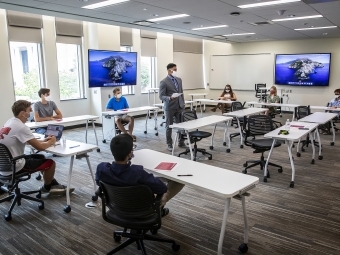
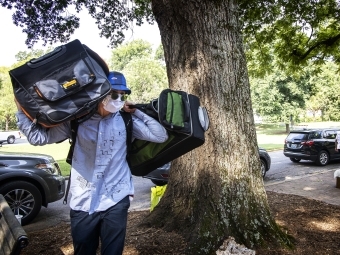

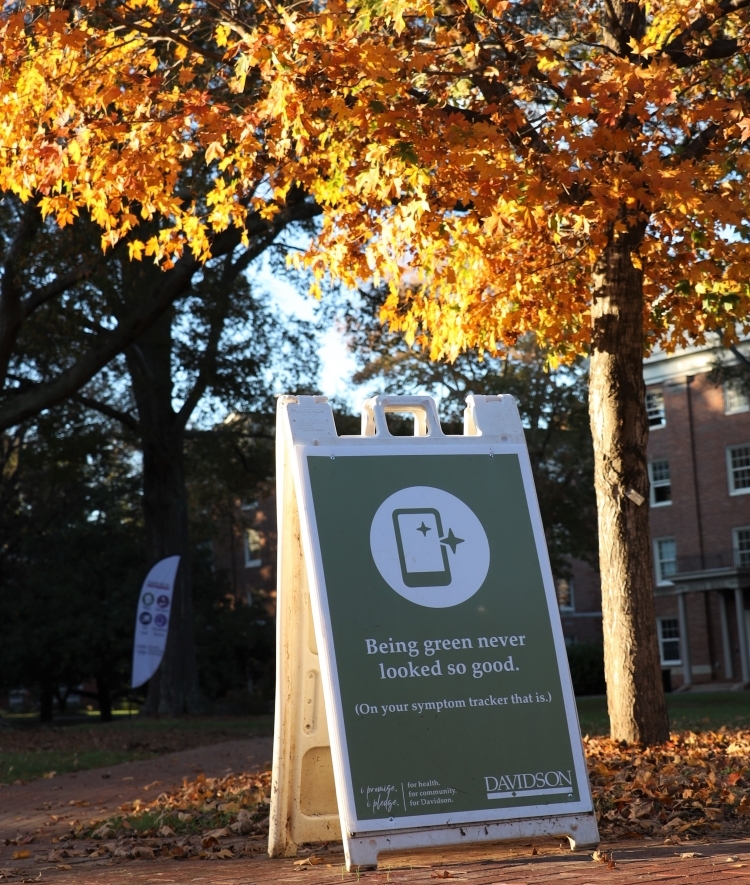
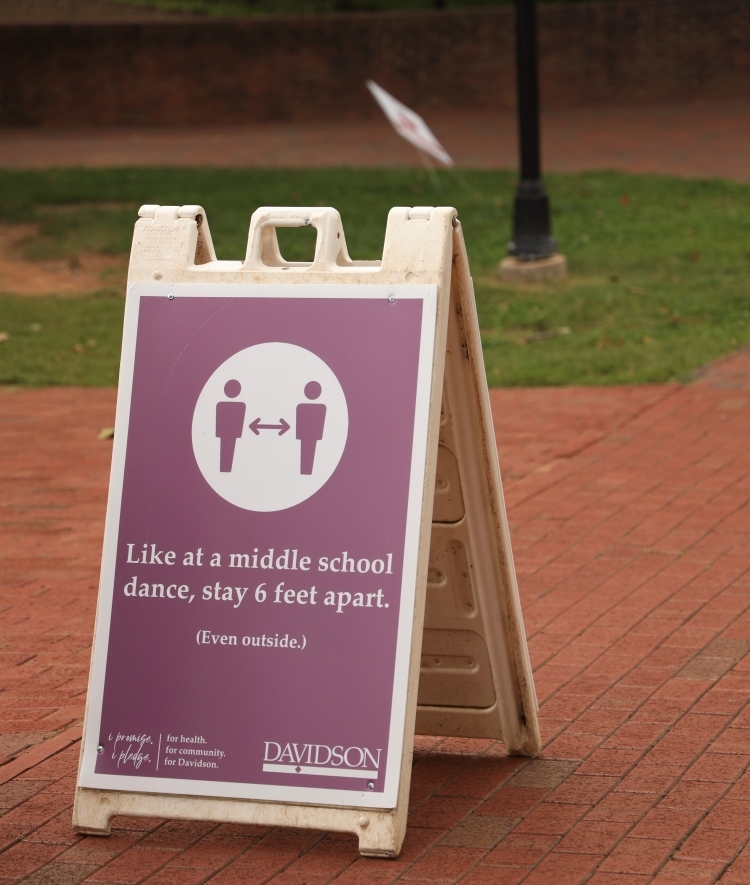
Students had received a COVID-19 test by mail to take before coming back. The college spread move-in dates out over several weeks. Classes began. Some met in person, others remotely through Zoom, and some combined the two. Students would then get tested once a week for the semester.
For one of the very few times since 1930 (World War II being another), there was no Cake Race. Davidson socially distanced and lived by the mantra: “Cats wear masks.”
September/October
The fall semester’s Reynolds lecturer Ibram X. Kendi delivered his talk on Zoom. The historian and author of the best-selling book How to be an Anti-Racist, addressed the importance of voting.
To say I don’t do politics is to say that I don’t do power,” Kendi said. “It’s saying, ‘do whatever you want to me.’ To not vote is equivalent to saying, ‘just dominate me.’
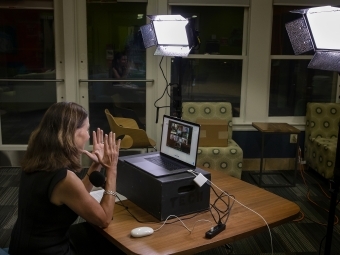
The message resonated especially at Davidson. The college’s Center for Political Engagement (CPE) had launched its “Davidson Votes” program before the spring primaries, and by fall’s general election had registered more than 300 eligible voters.
Students worked on political campaigns, for non-partisan non-profits geared toward increasing voter turnout and supporting good governance, and to educate people on the stakes of the national and local elections.
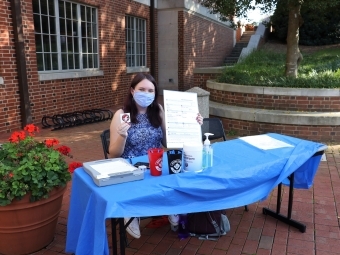
CPE Vice-President Maddie Buitendorp ’22 worked as an intern for Rock the Vote, which she says gave her an even deeper commitment to voting rights.
“Voting is the basis for Democracy,” she said. “Taking that on to Davidson’s campus is the most direct way that I can make sure my community is able to vote, is educated on what is on their ballot and is energized to show up on election day.”
November/December
The word unprecedented surfaced many times around the election.
Democrat and former Vice-President Joseph R. Biden defeated incumbent Republican Donald J. Trump with more than 80 million votes to Trump’s 74 million. It was the highest number of votes ever cast in an American election. Biden’s running mate, Senator Kamala Harris, became the first woman elected as vice-president. She’ll also be the first Black vice-president, and the first vice-president of South Asian descent.
Trump refused to concede the election, alleging rampant voter fraud in swing states and losing more than 50 court challenges when judges ruled that the claims lacked evidence. The Electoral College voted Dec. 8 to certify Biden’s win. (As of late December, Trump was still fighting to get the election results overturned.)
Unlike normal years, Davidson opted to close campus before Thanksgiving, with students finishing the semester remotely this month. Four students, T.J. Elliott, ’21 Adelle Patten ’21, SGA President Harris ‘22, and Palencia, SGA’s class of 2023 president, spent their last days on campus creating a Black Lives Matter mural that now hangs on a brick wall outside the Alvarez College Union. Many other students helped paint tiles.
“We wanted to include the whole student body to show this is not just one person saying this, but this is where we stand together,” said Elliott, a linebacker on the men’s football team and a Bonner Scholar from Charlotte. “We want to let people know we’re going to keep fighting for Black and Brown lives, for more opportunities and equitable treatment, in Davidson and the United States.”
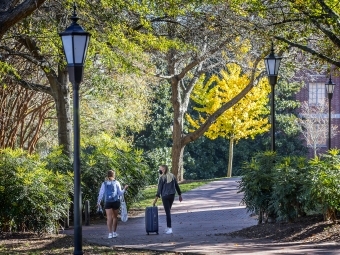
As the calendar year ends, COVID-19 vaccines have landed in hospitals, clinics and doctors’ offices, with medical workers the first Americans to receive them. As the death toll continues to climb, scientists are urging people to stay home when possible, wear masks, and avoid large gatherings.
Most Davidson students are home with their families now, forgoing big celebrations to remain safe. Palencia, a Posse Scholar and a Bonner Scholar, is spending a quiet holiday season with his parents and younger brother in their Miami apartment.
It’s been a stressful year for his family and many of their friends. Their biggest fear has been contracting the virus; his parents are immunocompromised but can’t afford to miss work. The pandemic has added more financial struggles, and they’ve held tight to each other through its hardest days.
This New Year’s Eve, his family will watch the ball drop on Times Square at home. They’ll have the grape ceremony and walk around the block with suitcases.
“This year I have a feeling that as we reflect on each month, we will savor each grape more,” Palencia said. “We have endured everything that 2020 has thrown at us. It showed me that when the going gets tough, the tough really do get going.
“This pandemic called on each and every member of our communities to do their part. It tested us in ways that we have never been challenged before. We needed to be resilient, determined and hopeful. Most importantly, we had to be together—even when that was at a distance—we were going to do this together.”
